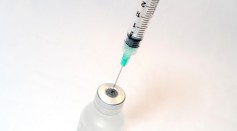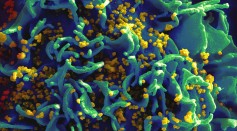medicine

Study Reveals iPhone Separation Anxiety Is Real

The Universal Flu Vaccine: How Long Until It's Here

Aspirin May Do More Harm Than Good for People Seeking to Prevent Heart Attacks

Happiest Place on Earth or Headquarters for the Measles?

Spinal Implant Could Help Paralyzed Walk Again

New Pop-Up 3D Structures Mimic Neural Circuitry

The One-In-A-Million Birth, Genetically Identical Triplets Born In Montana

Why 'The Eternal Optimist' Has Never Been Truer

New Study Explains Why HIV Vaccine Backfires

Woman Becomes a Mother Only an Hour After Discovering She Is Pregnant

New Study Reveals Beethoven's Music May Have Come from His Heart

Novartis Seeking Approval for Medication to Treat 'Smoker's Cough'

Slow Control Reveals Even More Baby-Friendly Gadgets at this Year’s CES

Type 1 Diabetes Shortens the Lifespans of Sufferers
Most Popular

How Technology Is Changing the Real Estate Industry?

AI Revolution in Medical Education: Transforming How Healthcare Professionals Learn

Zombie Star Set to Light Up Night Sky: Blaze Star Could Erupt Soon

Exploring Life Beyond Earth: Study Claims Other Planets Could Be Suitable for Alien Life






